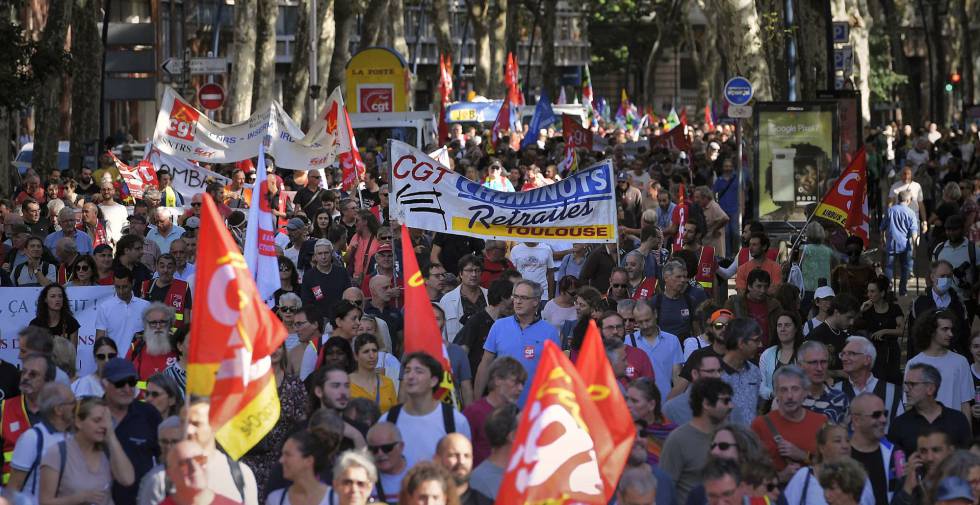Energy companies benefited by the crisis such as Total can raise them without haste; other firms, only moderately
Inflation is eroding the wages of European workers. Consumer prices in the European Union, which rose 10.9% year-on-year in September, have driven French energy and transport workers onto the streets. Meanwhile, Britain’s NHS is preparing for a major strike, and unions across Europe are demanding major pay rises to maintain their spending power.
Investors are concerned about the risk that rising labor costs will hit company margins. But the protesters are right. Raising wages makes economic sense. It would support global demand and help cushion the next downturn.
Central banks have warned of the risk that a feared wage price spiral could fuel inflation for years. These concerns should not be underestimated, but they have not yet materialized. The European Central Bank pointed out last month that the wage agreements concluded so far for 2022 and 2023 foresee increases of only 3% on average for this year and the next. That would point to a real decline in real wages unprecedented in the last 50 years.
Energy companies that have benefited from the European crisis, such as €139bn TotalEnergies, can afford a general pay rise. CEO Patrick Pouyanné’s group, one of the main targets of the collective action in France, has already offered a 6% raise plus a bonus equal to one month’s salary. It is a sensible measure for a group that should double its annual net profit to 38,000 million euros in 2022, according to Refinitiv estimates.
Most other companies are not in such good shape. French union leaders have criticized groups that raise their prices faster than their workers’ wages. But there are reasons for it. Industrial producer prices – what companies pay for components and raw materials – rose 43% in August year-on-year in the EU. Not all companies can pass on all their costs to customers: permanent wage increases would further reduce their profit margins. Moderate increases, accompanied by specific incentives, are a better way to deal with a real problem and avoid a lasting blow to company results.
Businesses, workers and governments have to share the burden of the shock caused by the war in Ukraine. But European workers may feel that they have paid too high a price so far. Helping wages catch up, at least in part, would benefit workers and the European economy.














